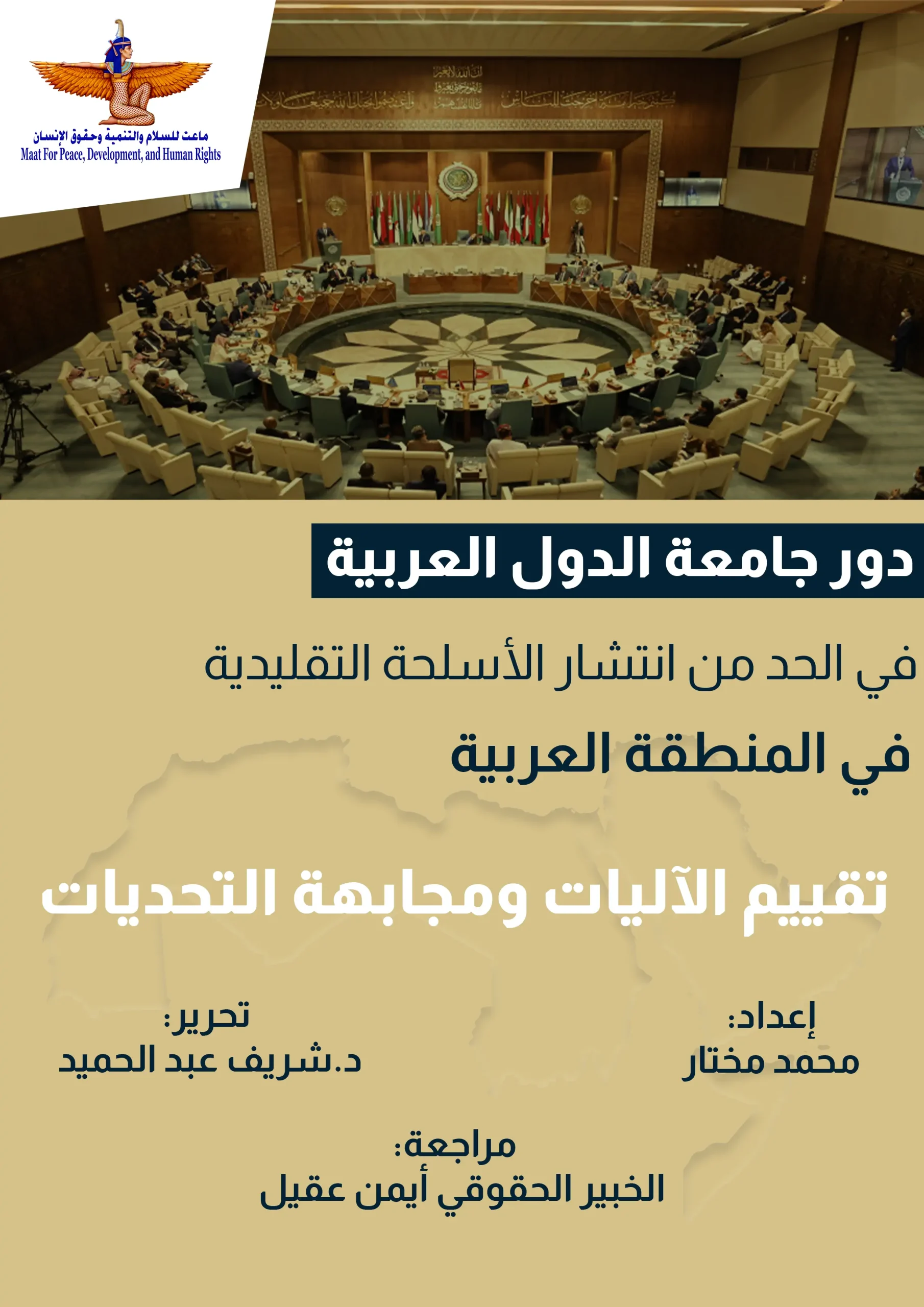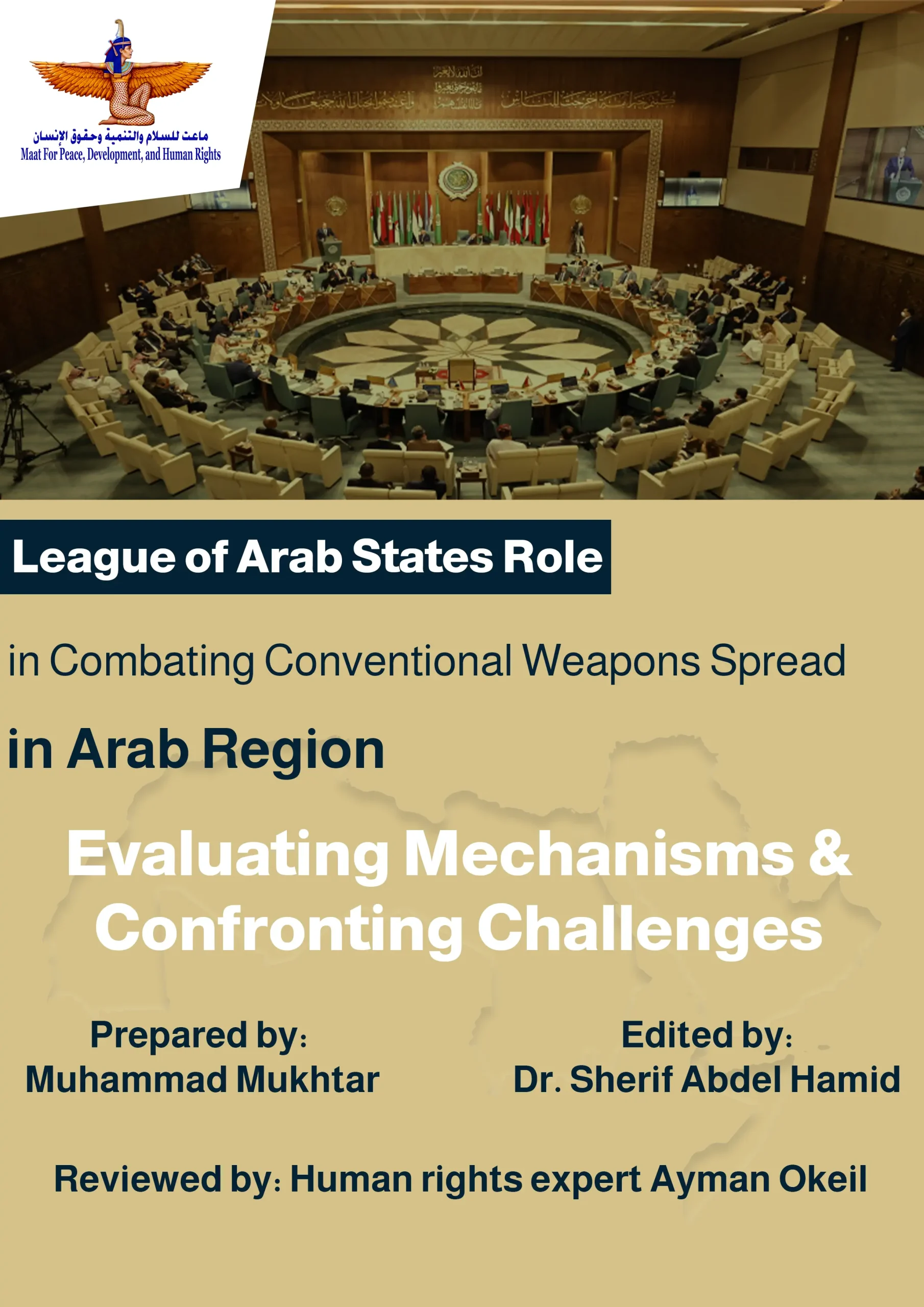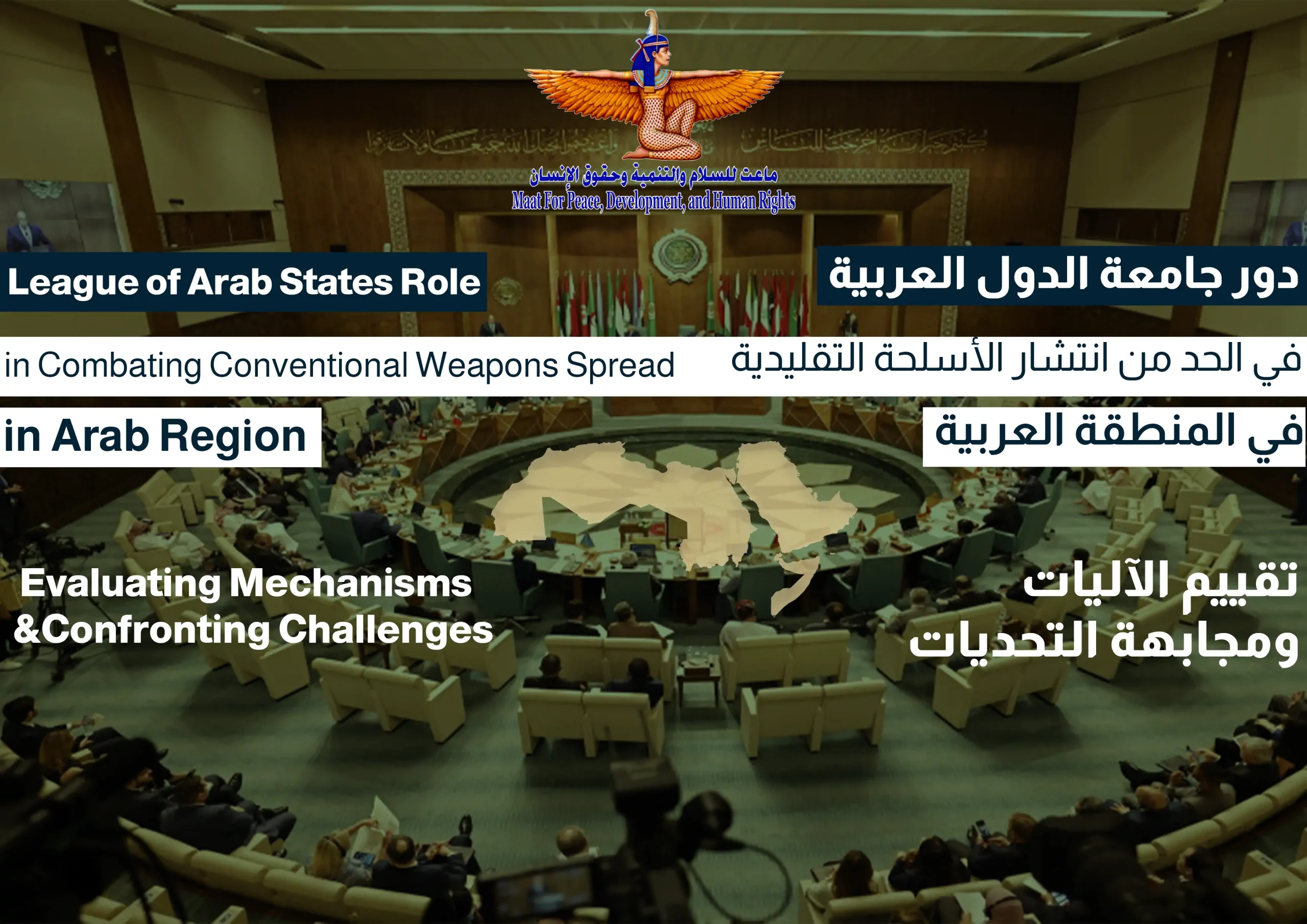In a new study by Maat... LAS Marginalizes Issues related to Combating Spread of Weapons
“Okeil”: LAS failed in developing a unified Arab protocol to limit spread of weapons
Mukhtar: There is an urgent need to have an electronic platform that includes information related to arms trade in Arab region
Maat for Peace, Development, and Human Rights has released a new study titled " LAS Role in Combating Proliferation of Conventional Arms in Arab Region: Evaluating Mechanisms and Confronting Challenges." The study highlights the Arab League's failure to address the issue of conventional weapons proliferation in Arab countries, particularly in areas affected by armed conflicts and civil wars. It reveals that the Arab League has been unable to alleviate the suffering of civilians resulting from the availability of weapons to terrorist groups, armed groups, and certain parties involved in armed conflicts. Through its monitoring and analysis, Maat examined over 2,782 decisions issued by the Council of the League of Arab States at the foreign ministers' level. The findings demonstrate that the League has marginalized matters related to combating weapon proliferation. Out of these decisions, only 20 of them discussed the topic of limiting weapon proliferation, with 3 directly addressing the issue and 17 indirectly referring to it. However, no practical proposals were presented to prevent the illicit flow of weapons to armed or terrorist groups. The League's response has largely been limited to denouncing and condemning without taking concrete measures commensurate with the gravity of the situation.
The study also highlights the insufficient efforts made by Arms Control and Disarmament Department of Arab League to enhance the capabilities of law enforcement agencies within Arab countries in combating weapon proliferation. The training provided by the department to limit the spread of illegal weapons has not included several Arab countries experiencing armed conflicts. Moreover, the training has focused mainly on small and light weapons, disregarding other types of weapons used by armed groups in the Arab region. Additionally, there is a lack of studies, research, and publicly available data on the internet regarding the extent of conventional weapon proliferation in Arab countries. The Department failure to engage with influential civil society organizations in the disarmament field has rendered their current efforts ineffective.
Ayman Okeil, a human rights expert and Chairman of Maat, emphasized that the Arab League has failed in preparing a unified Arab protocol to limit spread of weapons in the Arab region since 2013. Furthermore, the lack of data and information about combating spread of conventional weapons within the Arab League hinders efforts to find radical solutions to reduce this phenomenon. For instance, the League has not published the Arab Model Law on Weapons, Ammunition, Explosives, and Dangerous Materials, nor has it released the Arab Strategy to combat the illegal spread of weapons in the Arab region.
Okeil highlighted League of Arab States' lack of cooperation with civil society organizations, emphasizing the absence of an official mechanism for their participation in the League's meetings. He called for the establishment of guidelines that ensure the involvement of civil society organizations in all matters related to the League of Arab States' work in the field of weapons.
In addition, Muhammad Mukhtar, Director of International Humanitarian Law Unit at Maat, urged Arms Control and Disarmament Department of League of Arab States to develop an electronic platform containing information about the arms trade in the Arab region. This platform should include details on the volume of illicit weapons in Arab countries, as well as information regarding stolen weapons caches, their locations, and the major terrorist groups possessing weapons in the region.
Lastly, the study presented a vision for reform to strengthen the League of Arab States' role in limiting weapon proliferation in the Arab region. The proposed reforms include the necessity of enhancing the institutional and legal framework of the Arab League concerning the limitation of conventional weapon proliferation. This involves the development of guiding principles, regional instruments, decisions, and laws related to combating the spread of conventional weapons. It is crucial for these laws to encompass all aspects of the phenomenon while fostering better communication with influential stakeholders in the disarmament field, particularly civil society organizations. Furthermore, building the capacities of member states within the League of Arab States in the areas of disarmament and arms control is essential. This should be coupled with the acquisition and accurate dissemination of data and information on arms trade and circulation among various parties. Effective implementation of disarmament agreements at the global level necessitates introducing amendments to the mechanisms responsible for limiting conventional weapon proliferation within the League of Arab States. These amendments should specifically target the Arms Control and Disarmament Department within the League's International Political Affairs Sector, the League Council in terms of ministerial decisions, and the specialized ministerial councils, notably Councils of Interior Ministers and Arab Ministers of Justice.


 |
 |
shortlink: https://maatpeace.org/en/?p=42163












